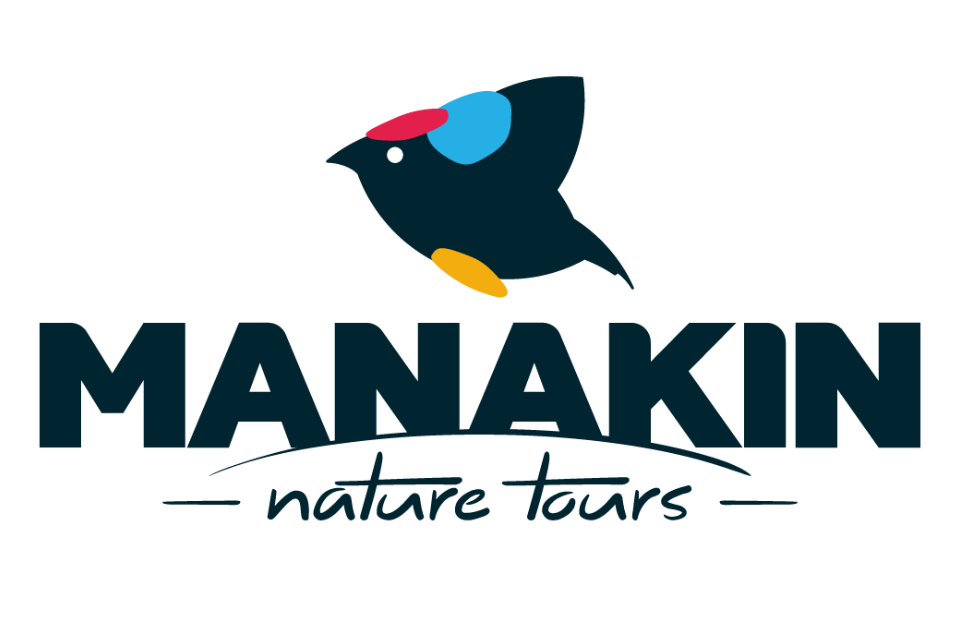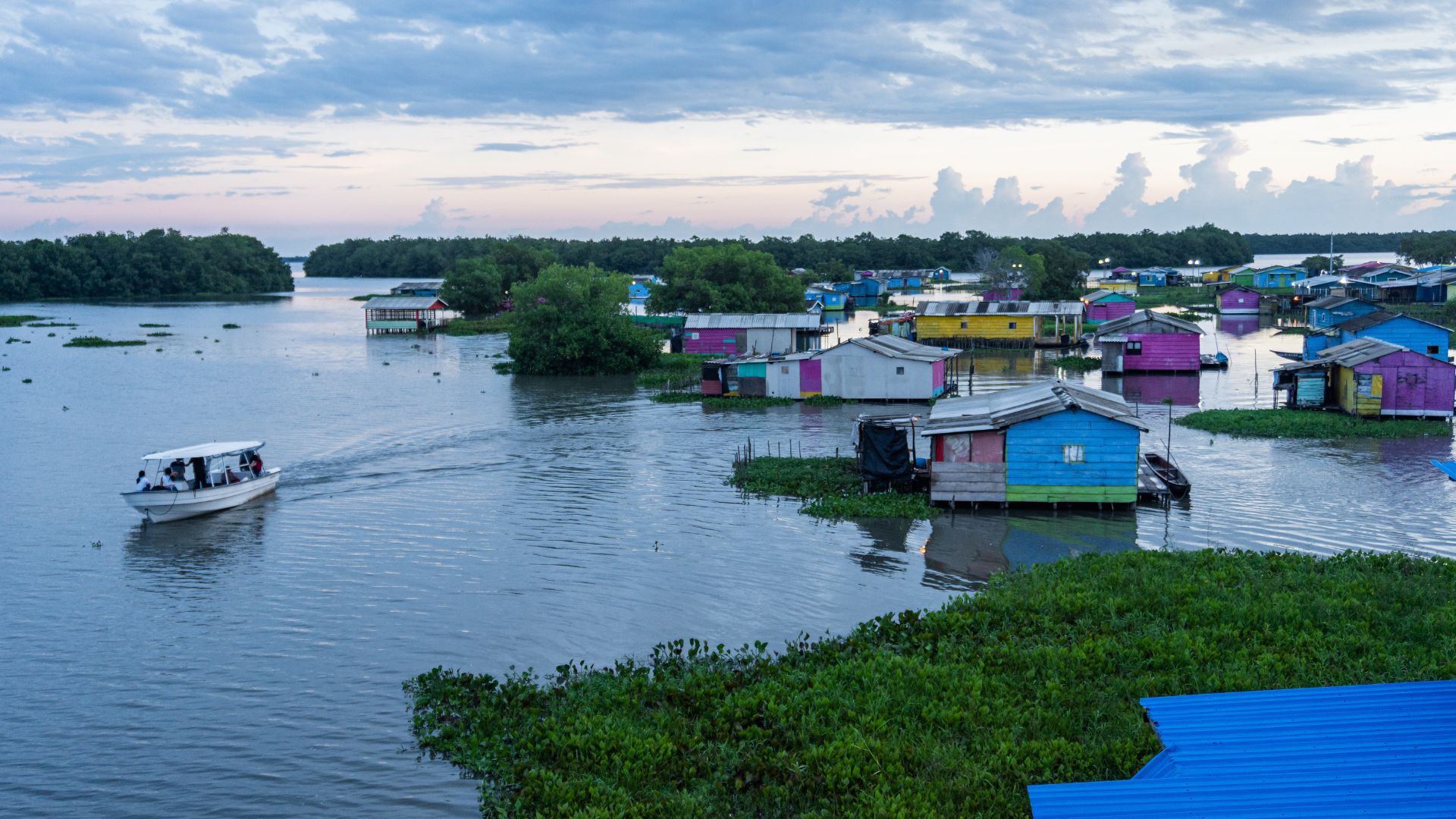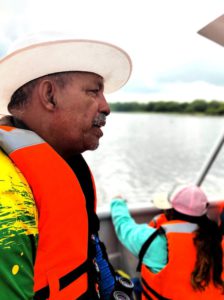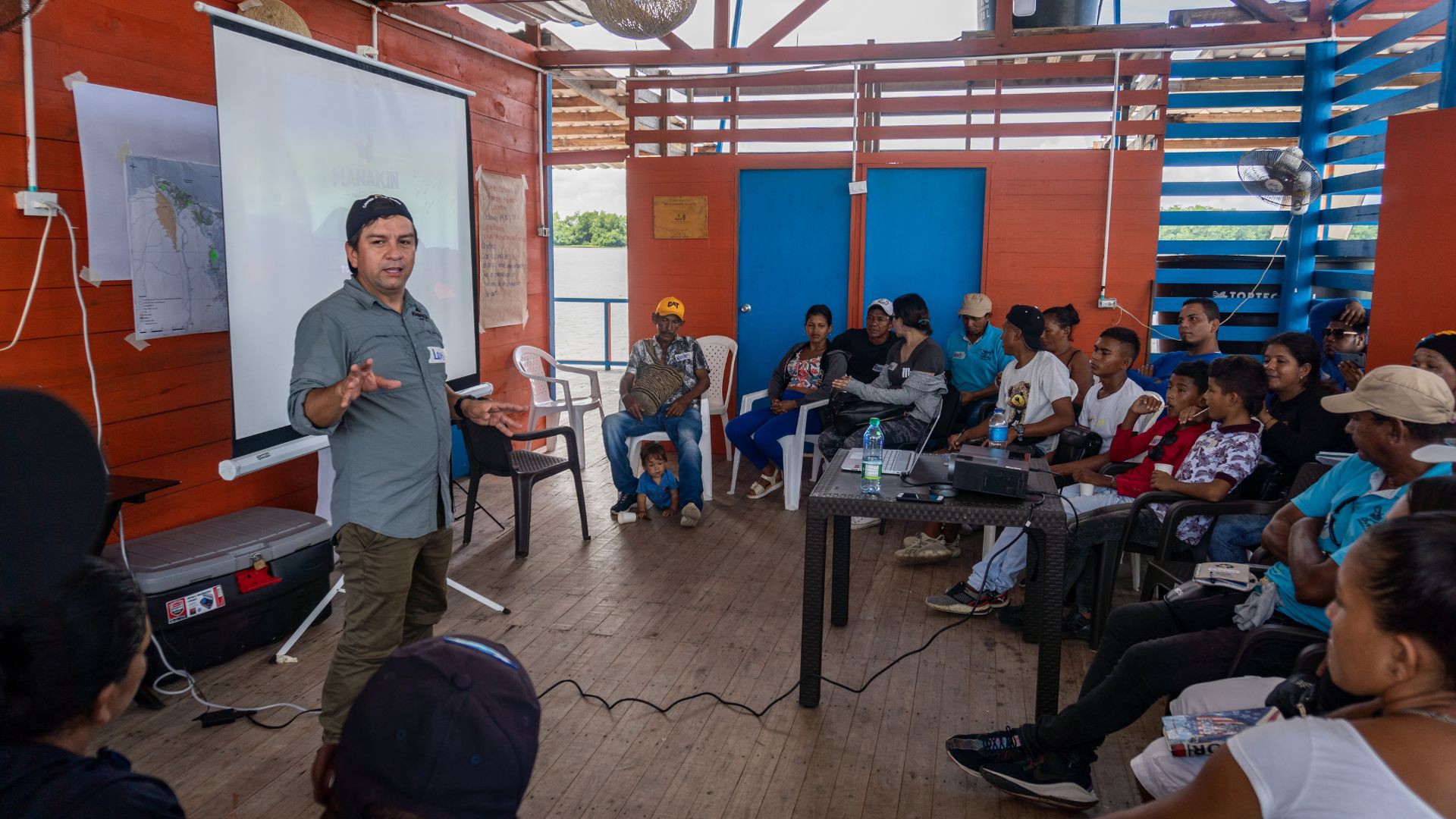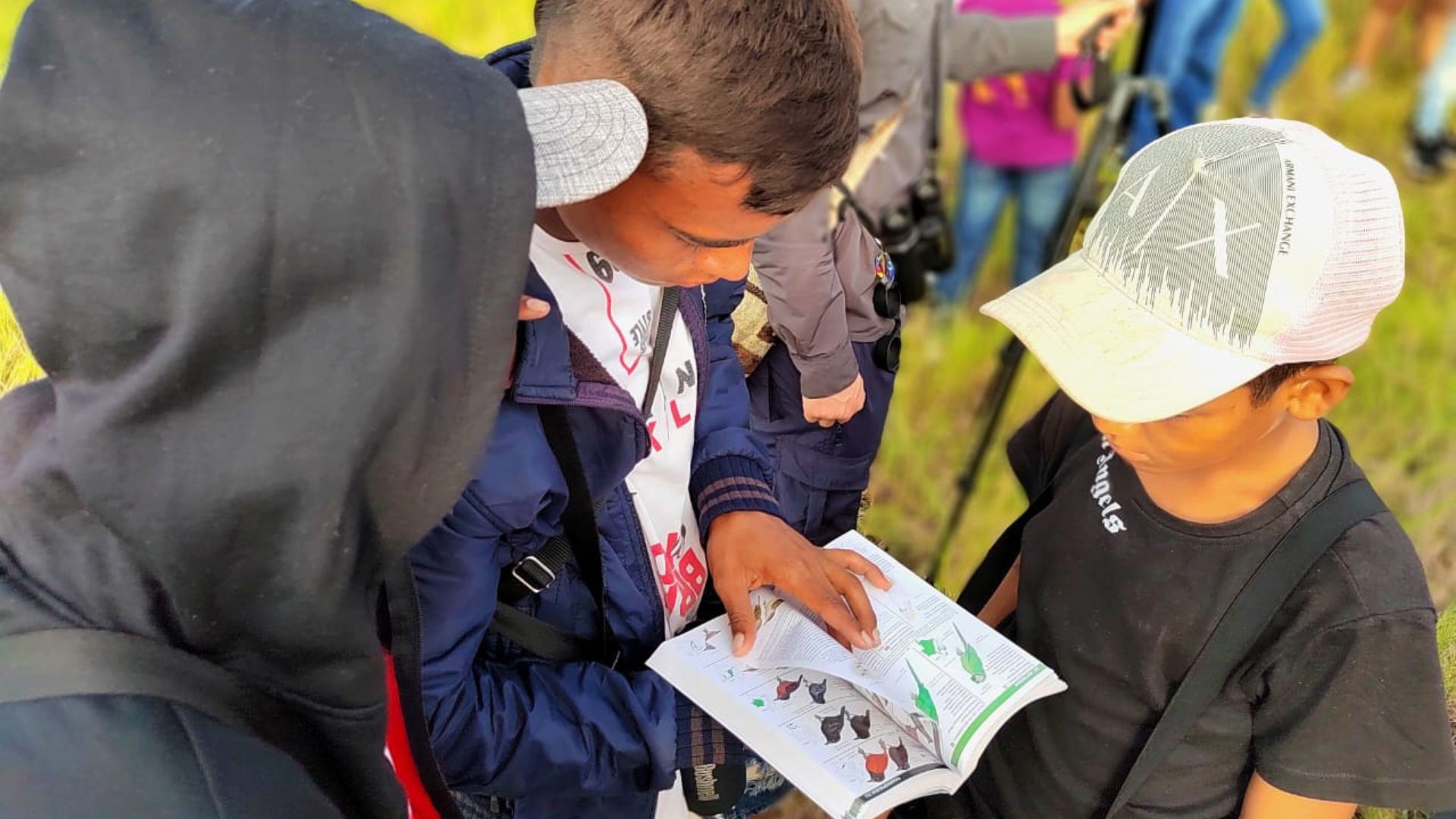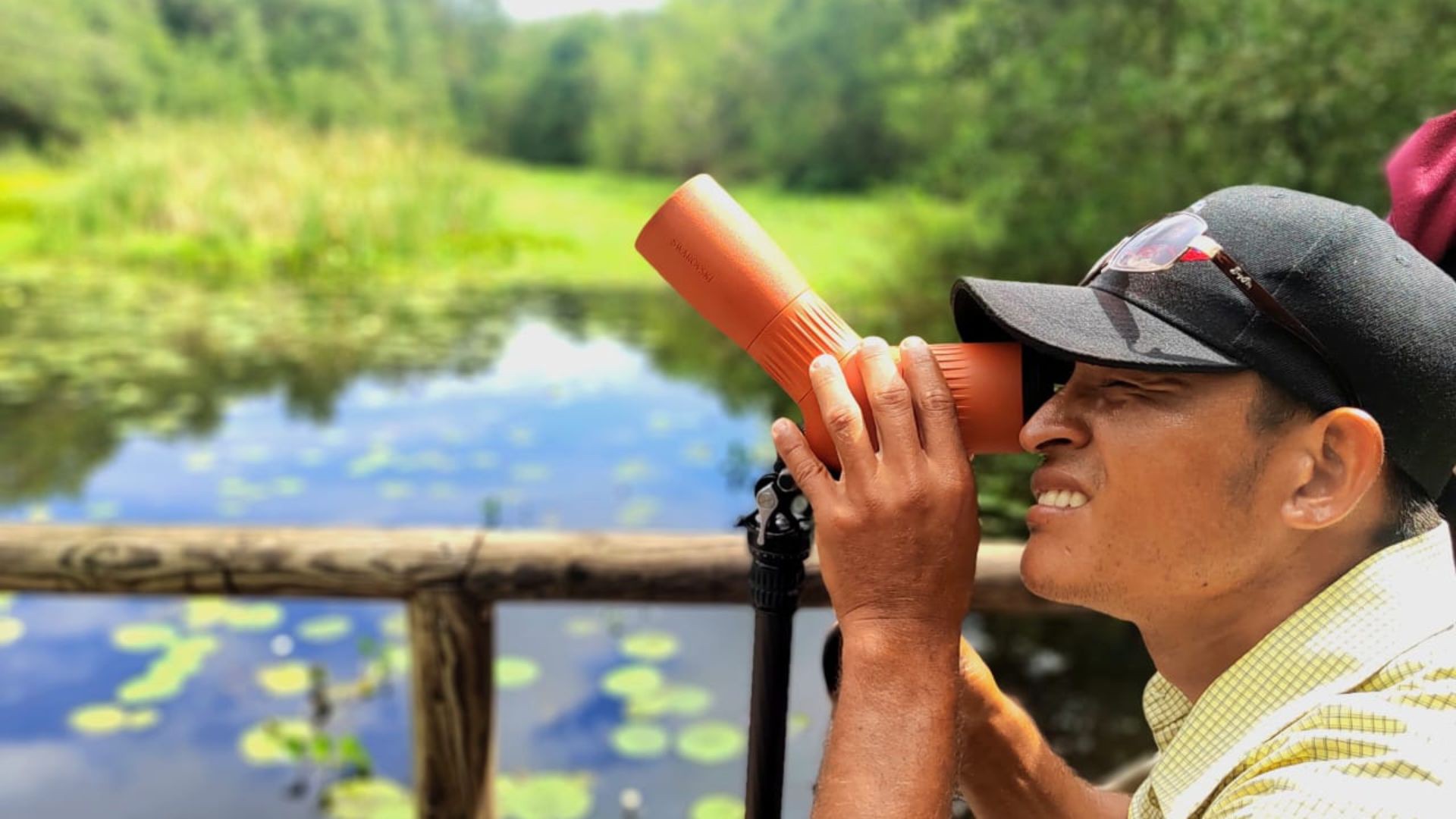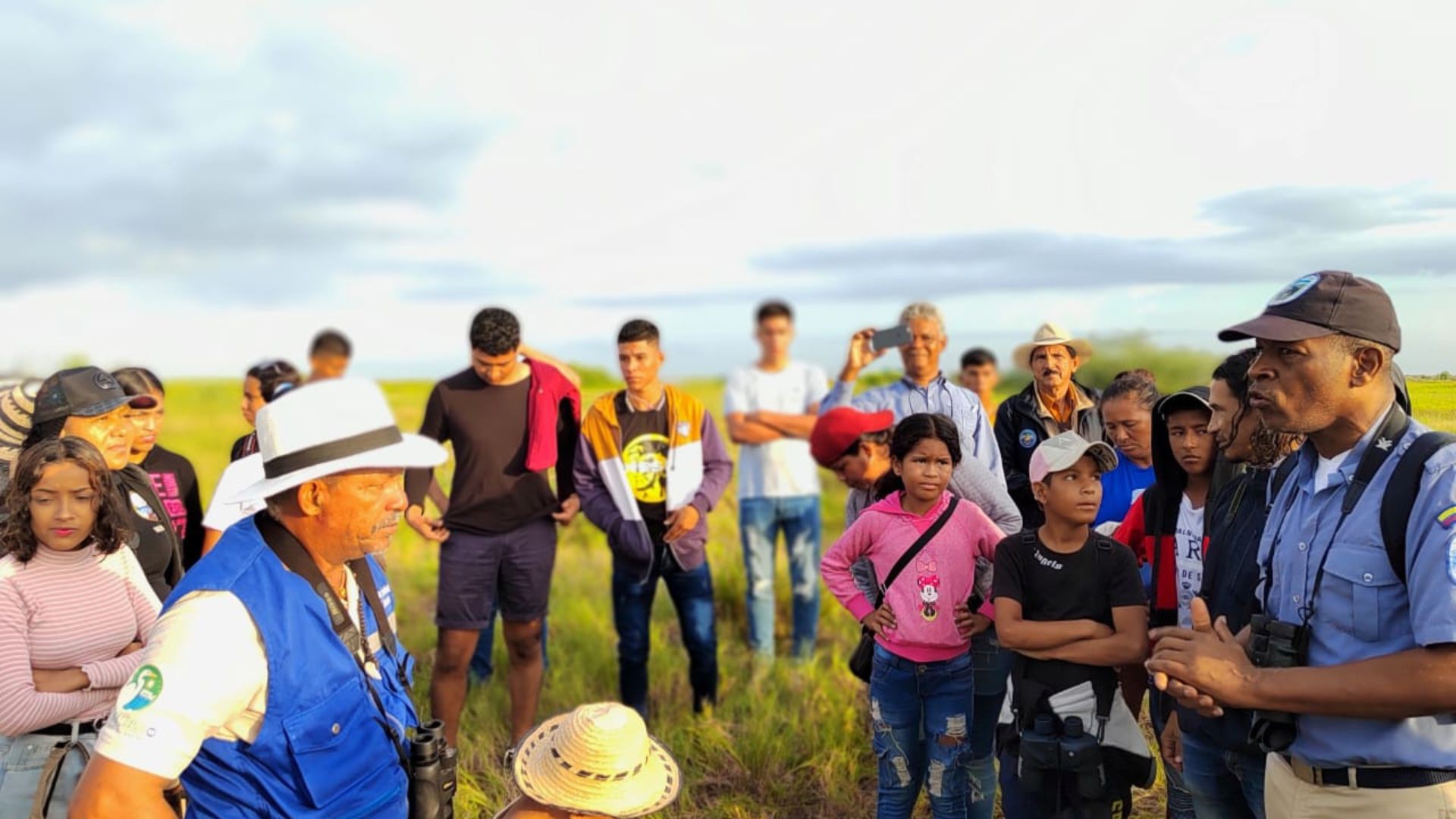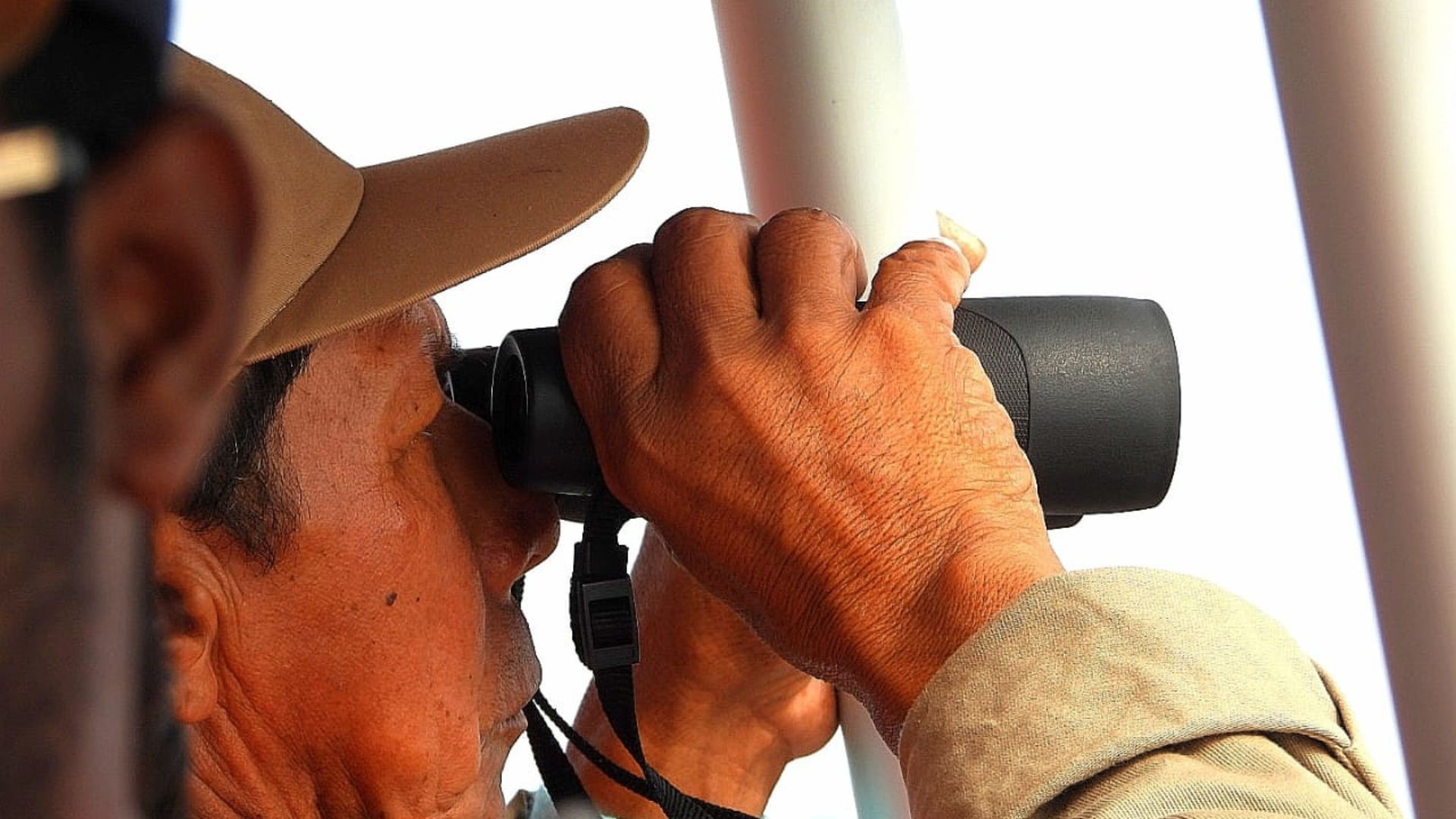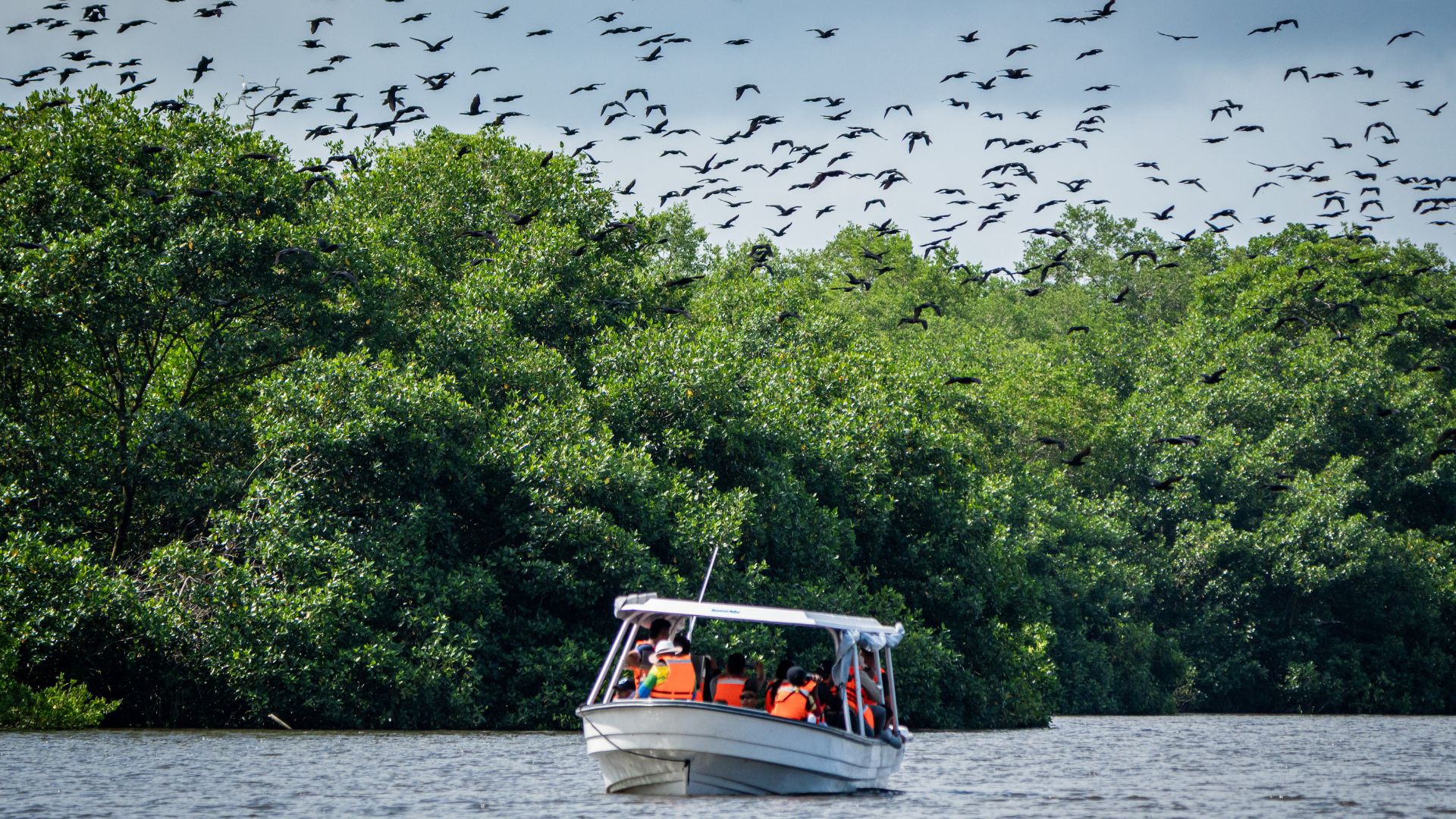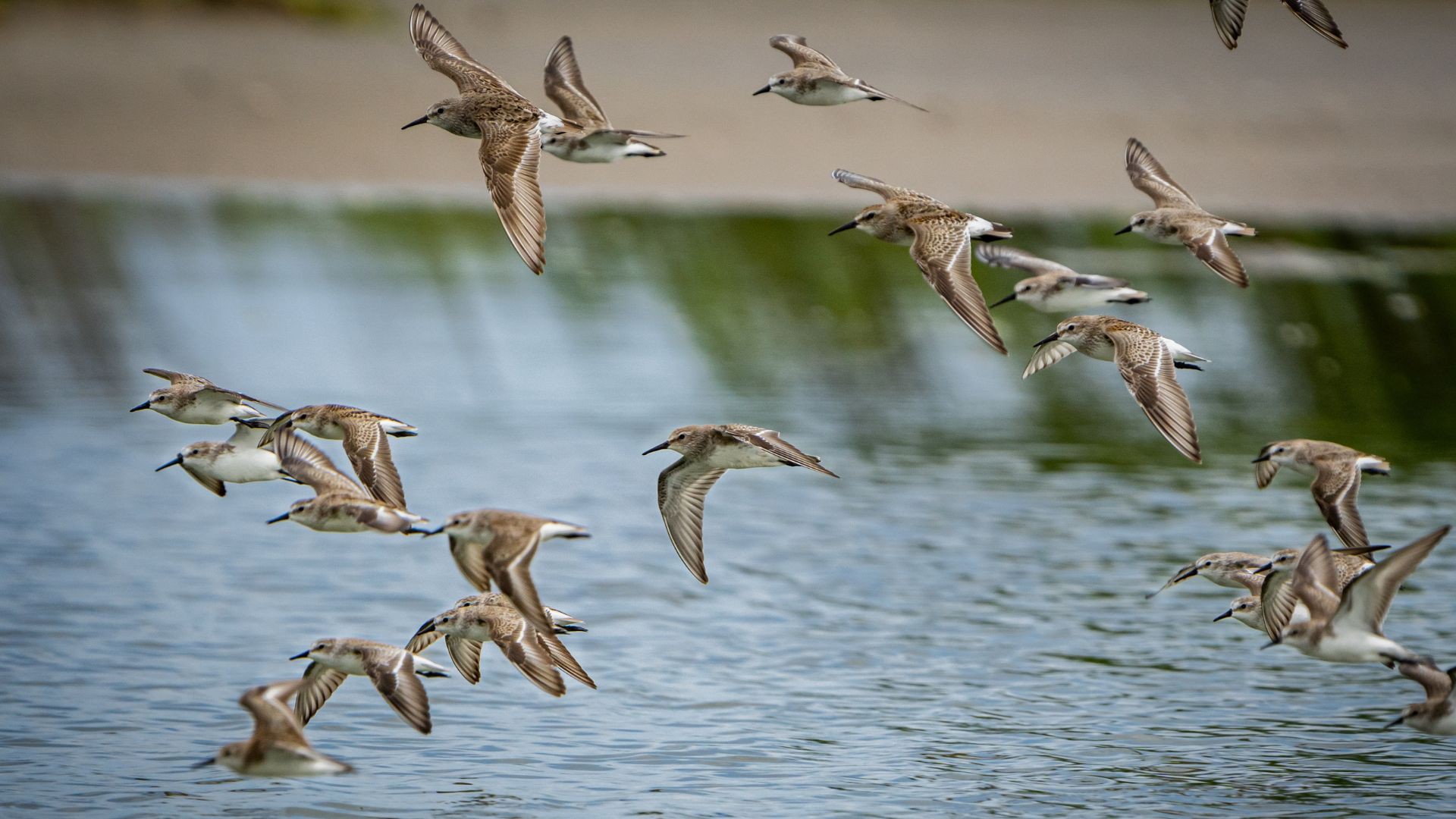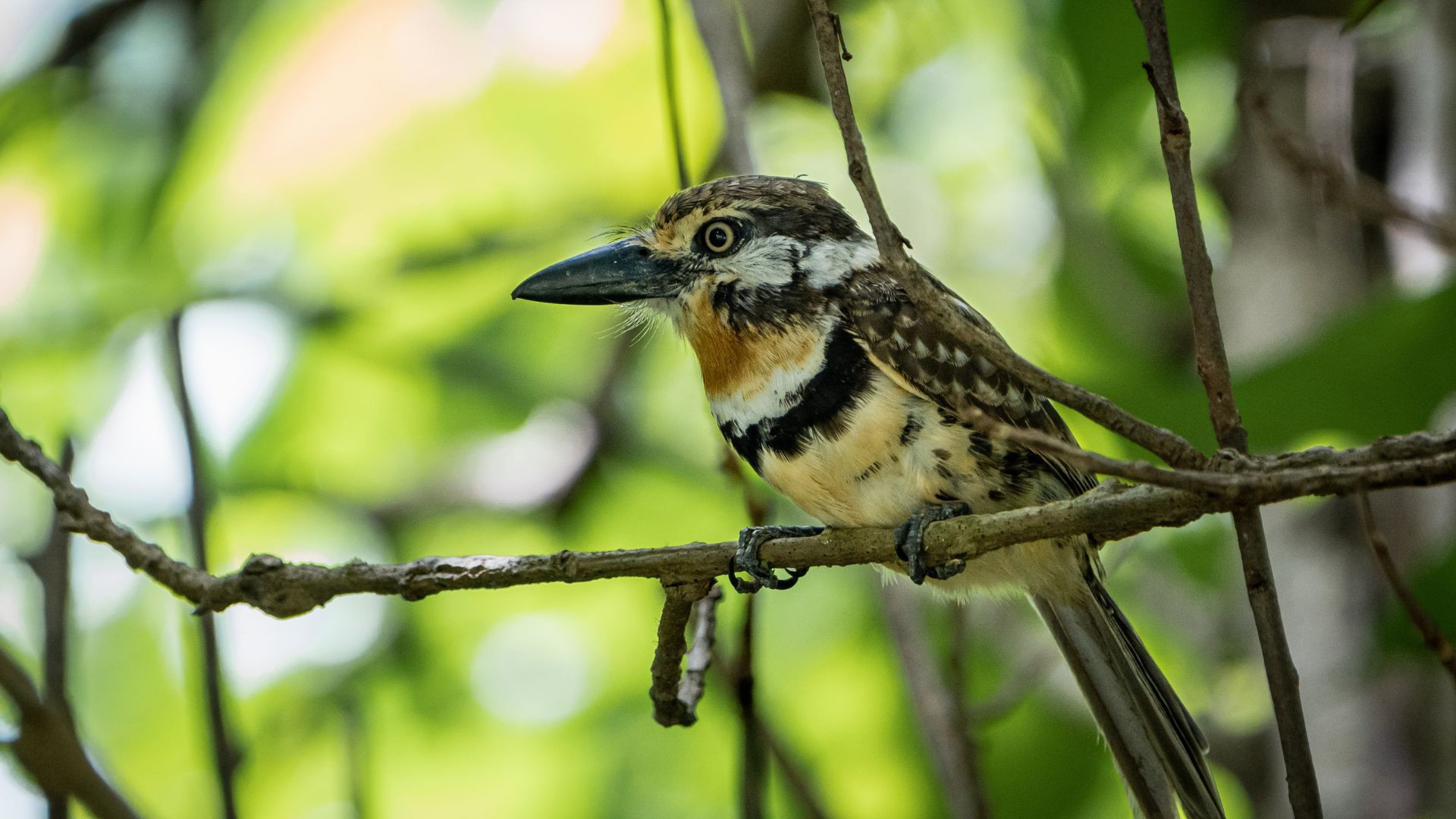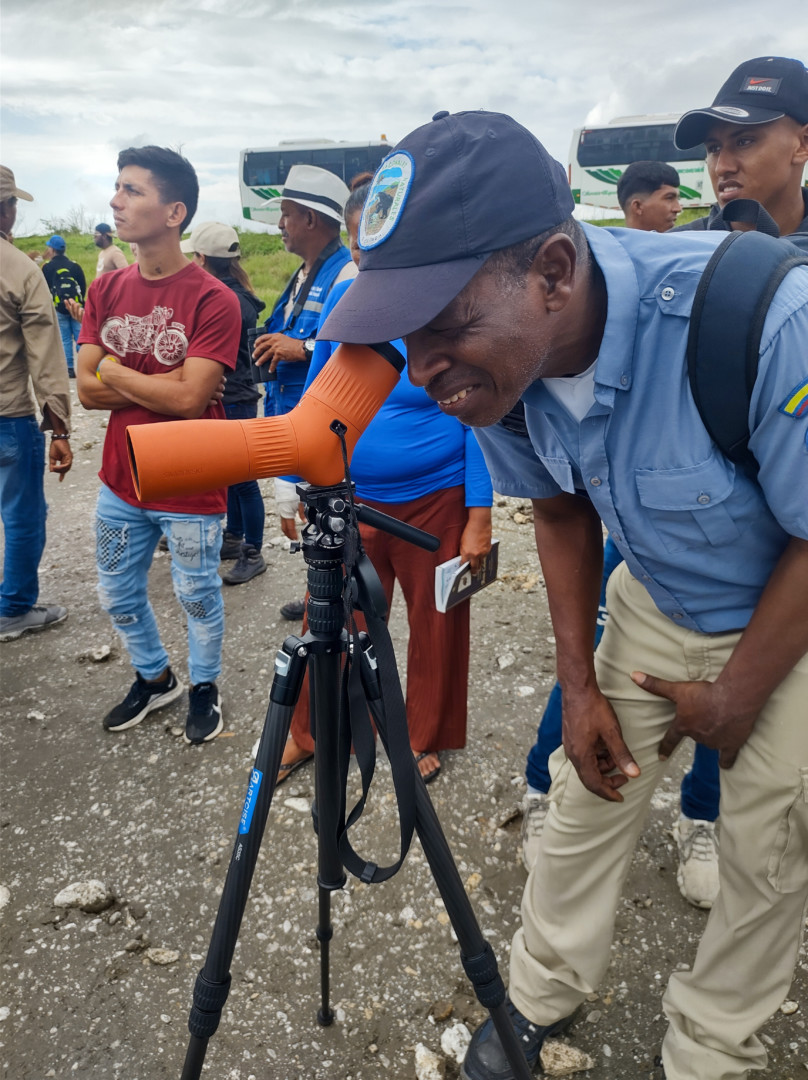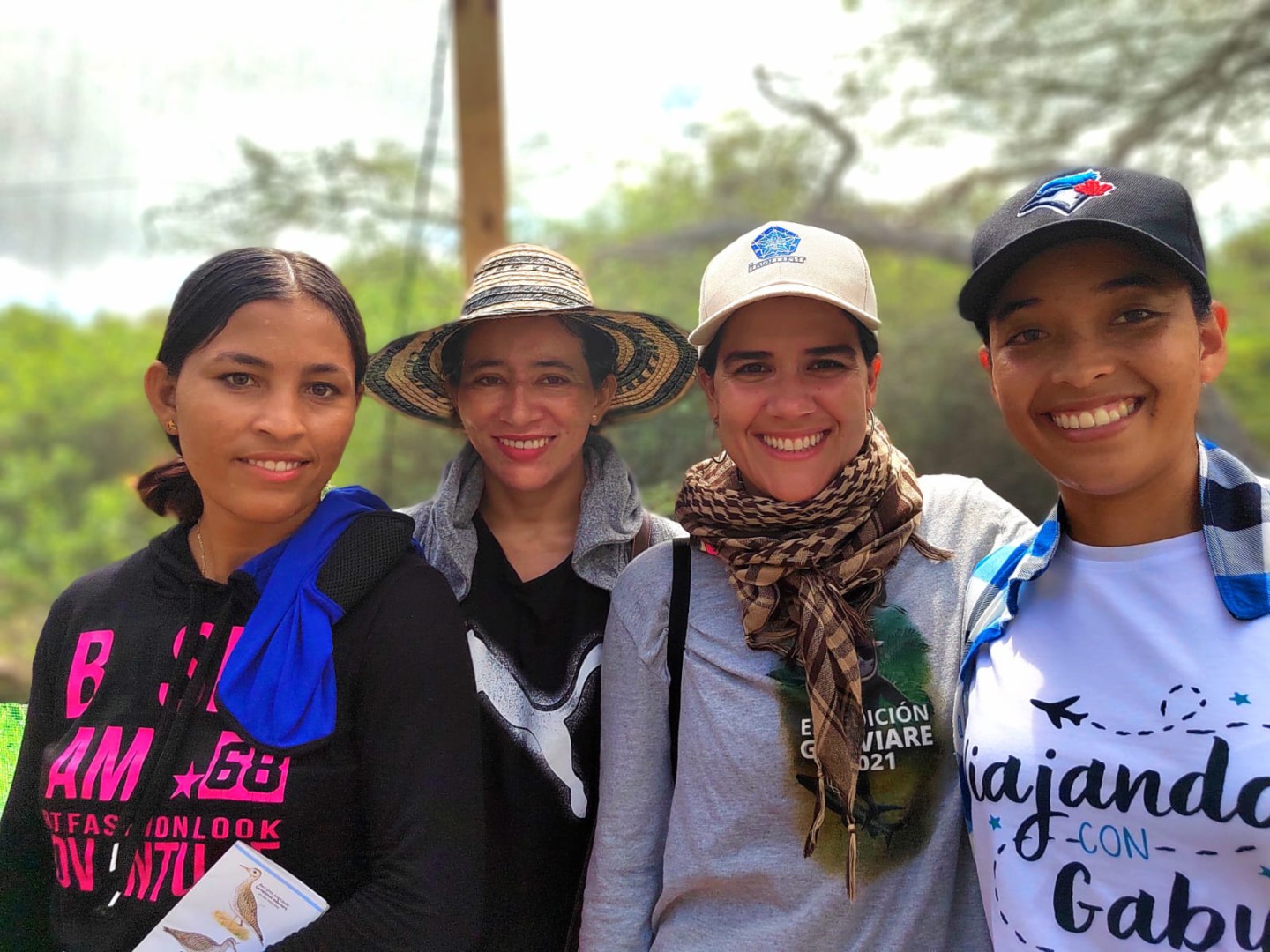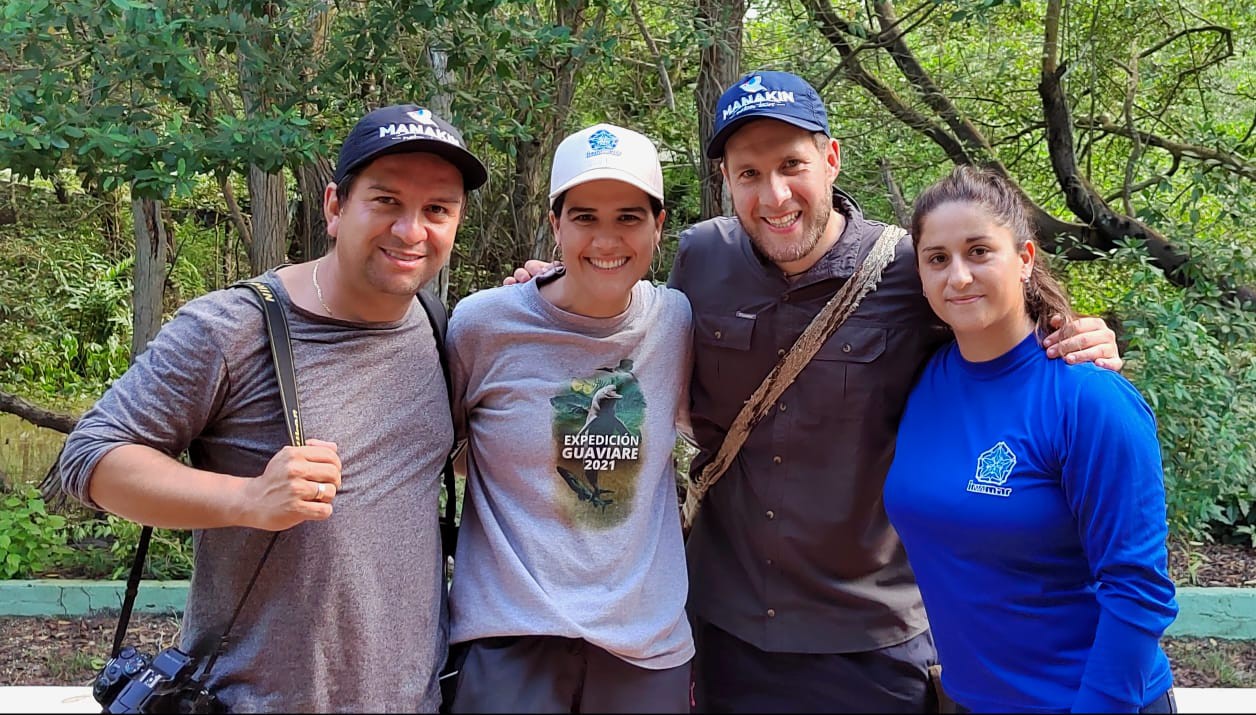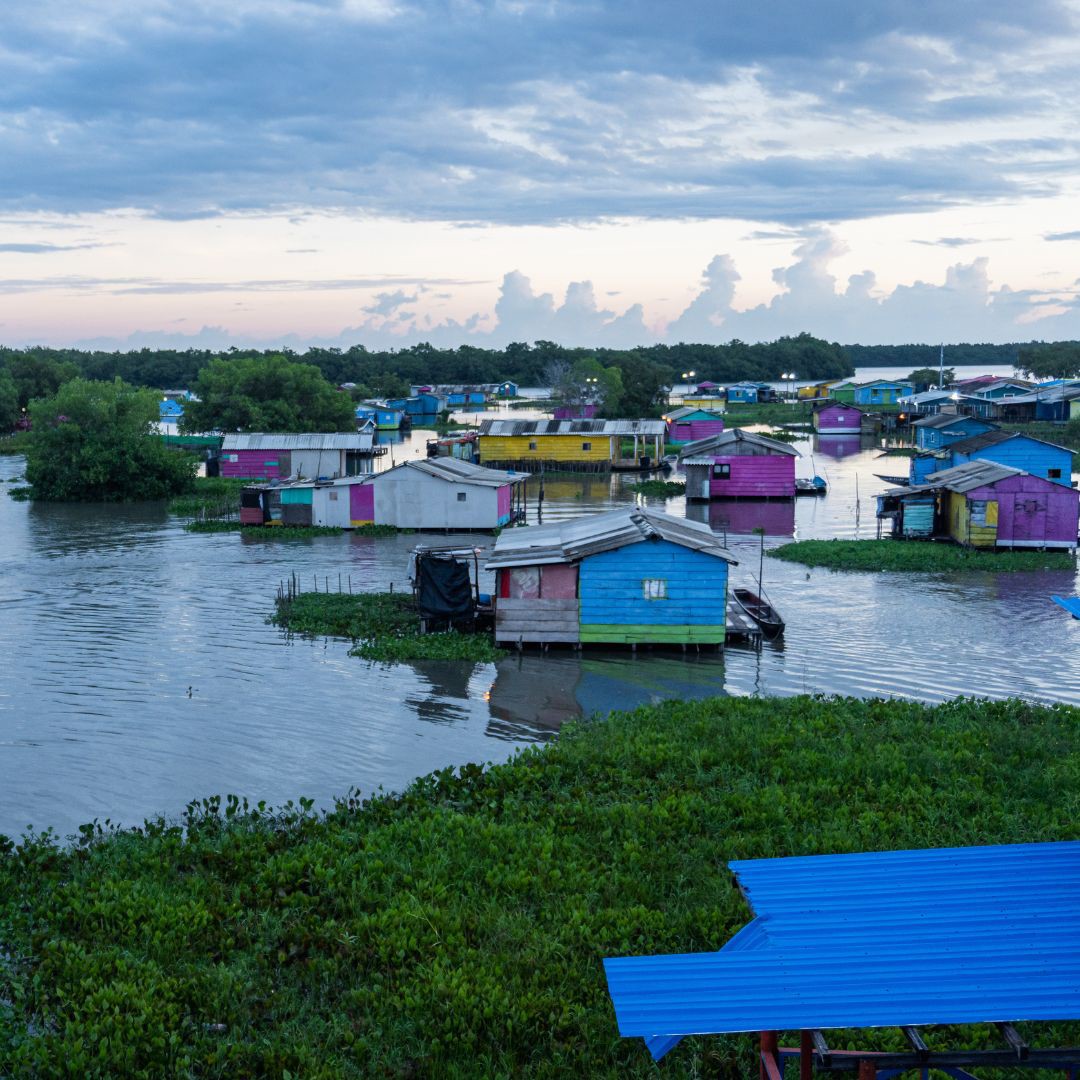
Palafitic Towns of Ciénaga Grande de Santa Marta – Colombia Birding and Resilience, History, Culture and a beautiful way of life
By Luis Urueña
Recently I met the clearest example of resilience that I have seen in my entire life, and definitely one of the most impressive places that I visit someday.
I was invited by Marcela Franco, a great friend with whom I worked on social projects at WWF and who now works for INVEMAR (Institute of Marine and Coastal Research) to give a workshop on birdwatching as an economic alternative in the Ciénaga Grande de Santa Marta for communities who live there, among them the Palafitic (for those who do not know, palafitic peoples are those that literally live in houses placed on wooden pylons in the water, the land at this point does not exist), and I remember that the first thing Marcela said to me : “This is going to be harder compared to what you have done before”, I happily said yes. I like to teach.
These palafitic villages live almost entirely from fishing, one of the villages called Buenavista with perhaps a little more than 1,000 inhabitants, welcomed us for a couple of days while we taught the course and the other, Nueva Venecia, with more than 3,500 habitants opened their doors to us to let us see their way of life; The first thing I saw were picturesque and well-maintained houses, painted with beautiful murals, of the faces of children and people in the middle of nature, but with some gray scenes that I could not understand, clearly because I did not know their history. The curious thing, as I said, is that these houses were made of wood, on stilts buried in the water and the green that was seen around them were patches of water buchón that came and went every day at all hours, there was no land and this obviously made me think about many things about what life will be like for them in aspects as normal for us as walking.
Don Javier, a man of about 60 years old, with a strong and serious appearance, received us at the amphibious culture interpretation center (love this name for what it represented), a visitor center, donated by one of the international cooperation projects who have been there, which also has an observation tower “supposedly for birds” and adequate facilities to receive visitors. Javier, turned out to be the leader of this community and also a tourism entrepreneur, who, as he clearly told us, “everything stopped with the pandemic, but now I want to start again.” During the days with him, the way he went from being strong and serious, to being a completely sensitive and empowered person in his community, who, to say the least, wanted to be heard, gave me an idea of his problems and his great power of resilience and it was something that I personally wanted to know.
The questions that I initially asked were, what did they want to know about birdwatching?, understanding that I had in my group of students, children, young people, adults, the elderly, mothers with babies in their arms, fishermen, entrepreneurs, the curious, etc., but all with the same goal of learning; most of them told me “we want to know the scientific names of the birds and what they are called”. I also asked if they had had any birdwatching workshops in the past and they said yes, clearly to me, they had been taught how to see birds, but they had never been told about the birdwatching business.
Throughout my career in nature tourism, I always had the idea that success in bird tourism was not just selling the experience of looking and enjoying birds as such, but also that we should connect with the people who do this possible and I wanted from my experience and my heart to teach them that, to connect with their clients and how to reach them, the incredible thing is that this feeling and this need to tell them everything I know, became stronger as I got to know each more and more his story, more and more his situation.
Seeing beyond what is visible, thinking from the client’s point of view, imagining that the everyday things in their lives could be a fantastic complement to the great biodiversity of mangrove birds that they have there, was my goal, I put them to think, I made them imagine, I made them dream what would be their ideal in nature tourism, curiously, many of them had a lot to do with birds, curiously, many of them, on their ideal day, always had birds singing around them.
This community has been suffering great blows for a long time, since the construction of the highway that connects Santa Marta with Barranquilla, which took away access to the sea, the massacre of the year 2.000 by groups outside the law where, due to many innocents died of domination of territory, even what is currently happening to them, which is the great problem of the sedimentation of the canals that irrigate the swamp and which is literally drowning this place and makes the biodiversity of the swamp die slowly, unfortunately a problem with a very simple solution but full of a lot of bureaucracy and with a completely uncertain future.
One of the moments that really had a lot of meaning in this visit, was in one of the outings precisely to looking birds, I wanted to take the theory of the classroom to the swamp, to the sea, I wanted to make them face the challenges that can arise when have a bird watcher client, who is not only interested in birds but also in their environment. In one of the communication exercises, in a very natural way, I heard from some of the participants their personal story, something with which they would connect with a client, several of those stories left me with a lump in my throat and literally I bit my lips, not to cry, at that moment I knew that I not only wanted to teach this course, I knew that I had to contribute something; and I specifically remember the response of Don Javier, the leader of the Buenavista community, when I asked him what a happy day would be like for him, and he told me with a trembling voice: “on my boat, near the mangrove, eating a Lebranche (a species of fish that is very rare now), without fear of anything, without any need, without any concern, listening the birds, listening the sound of the sea, with my friends or with the person who really wants to be with me” and I thought, that must have stopped happening a long time ago, because I really saw the desire in his eyes for that to happen again.
At the end of this emotional activity, we moved to the roost of the cormorants (Neotropical Cormorant) and although they had told me that there were many, I never imagined what I saw at this moment; more than 20 minutes of a tremendous movement of cormorants from one place to another within the swamp where roughly I could calculate more than 50,000 individuals, literally a black cloud of these birds flew over the water, being one of the most amazing things that I saw in my life in 20 years as an ornithologist, and I thought, this is something that should be shown and I thought in the same way, this place must be helped to protect it, it was really incredible. The landscapes were also sublime, the combination of the river, the swamp, the sea, the mangrove swamp, the wetland grasslands, the forest, made my imagination explode, many birds, many photos and I was happy to share what little I know with people who I really wanted to learn… what a good experience and obviously the birdwatching is amazing.
All people should know this place and certainly it is a place that I will start offering in the Atlantic Coast packages of Manakin Nature Tours, the birds are good, the nature is very interesting, but really the incredible thing was to see the dynamics of these towns. How the boats go from one place to another through the streets of water, how the children go from house to house in their small boats or on the tops of the tanks, how a youth meeting becomes an unmissable event for three 12-year-old girls who put on their best clothes for the party and the dogs swim from house to house for food that is usually fish bones. As water is a fundamental and indispensable part of their lives, but at the same time it limits them so much in their daily lives, it is something beautiful, strange, admirable, perhaps difficult to understand, but simply something that remains in the mind of any person forever.
I met other very special people, Navil (a master with the birds), he knows them all, he knows how everyone sings, they know where everyone is, also a super assertive person to learn and do new things, Gaby and María, two completely empowered women of their future and with an impressive desire to be great businesswomen, very special people, from local organizations such as CriaPez, Parques Nacionales, artisans, singers, dancers, members of isolated communities (immersed in extreme poverty) but with a way of such a special life, which makes them great survivors, people with a history of incredible resilience and who earned all my admiration.
When I arrived at the comfort of my home, and remembering these conditions and stories I thought about how lucky I am and why I do these courses, I would like many people to have a life I say, not better because that concept depends a lot on the perspective from which is seen, but maybe, easier, maybe more loving, more fun, fairer, and I saw a video of a Colombian artist, Carlos Vives and his Foundation – Tras La Perla – which was recorded precisely in the community where I was, with people with whom I was, where the reality and history that I knew is shown: Cumbiana
nd I cried like a little child, and I really just wanted to do more… and I hope I can.
Birdwatching is not only going to watch birds in incredible natural paradises and having an unforgettable vacation, for me, it is to contribute, it is to be a pillar, it is to be an example for people who see in the care of nature an opportunity, and that is what that I want to show people who, like me, are moved by the lives behind birds, with people who put all their efforts into living conserving nature and opening their lives and personal stories to strangers in order to survive.

